China VPN & Crypto Risk Assessment Quiz
How Much Do You Know About China's Crypto Ban?
Take this short quiz to test your understanding of the legal risks associated with using VPNs to access cryptocurrency in China. Your results will show whether you're aware of the severe consequences that could affect you.
Using a VPN to access cryptocurrency exchanges in China isn’t just risky-it’s legally dangerous. By 2025, China has banned nearly every form of cryptocurrency activity, from trading to holding, and using a VPN to bypass these rules puts you in direct conflict with multiple government agencies. It’s not a gray area anymore. It’s a red line.
China’s Crypto Ban Is Total-No Loopholes
As of June 1, 2025, China made it illegal to trade, mine, or even hold cryptocurrencies like Bitcoin or Ethereum. This isn’t a partial restriction. Banks can’t process crypto payments. Exchanges like Binance can’t operate in mainland China. Ads for crypto are banned. Mining farms have been shut down. Even peer-to-peer trades between individuals are considered illegal financial activity. The government doesn’t recognize crypto as money. It doesn’t even treat it as property you can legally own. But here’s the twist: courts sometimes recognize crypto as a form of digital asset in civil cases-like fraud or divorce settlements. That doesn’t mean you can trade it. It just means if someone steals your Bitcoin, you might get compensation. But if you’re caught buying it, you’re breaking the law. This ban isn’t about controlling volatility. It’s about control. China wants its citizens to use the digital yuan (e-CNY), a state-backed digital currency fully monitored by the People’s Bank of China. Every transaction is tracked. Every balance is visible. Crypto, with its anonymity and decentralization, threatens that control. So it’s been erased from the financial landscape.VPNs Are Not Legal Tools in China
Many people think using a VPN is harmless. It’s not. While there’s no single law that says “using a VPN is illegal,” the government has spent years making it impossible to use one without risk. Only government-approved VPNs are allowed-and those are for corporate use, not personal browsing. Any VPN you download from the App Store or Google Play that promises to bypass the Great Firewall is operating illegally. The Great Firewall doesn’t just block websites. It actively hunts for VPN traffic. It identifies patterns, blocks server IPs, and cuts off connections. Even the best VPNs have downtime. You might get access to Binance one hour, and the next day, your connection drops. That’s not a glitch-it’s enforcement. And when you use a VPN to access crypto? You’re not just circumventing internet rules. You’re also violating financial regulations. That doubles your risk.What Happens When You Get Caught?
You won’t see headlines about people being arrested for using a VPN alone. But when VPN use is tied to crypto, things change. People have reported their mobile data being cut off for days. Police have demanded they visit stations to explain their app usage. Phones have been confiscated to delete VPN apps, then returned. Some users received formal warnings from local authorities. Others had bank accounts frozen because their transactions matched crypto-related patterns-even if they weren’t trading directly. The real danger comes from financial regulators. The People’s Bank of China, the Cyberspace Administration, and the Ministry of Public Security all share data. If you send money to a foreign exchange via a VPN, that transaction gets flagged. If it’s repeated, you’re investigated for illegal foreign exchange activity, money laundering, or even illegal fundraising. Any profits from crypto trades? Confiscated. No court case needed. Authorities can seize funds under administrative rules. No appeal. No transparency. And it doesn’t matter if you’re a tourist or a resident. Foreigners have been fined, had their visas restricted, or been deported after being caught trading crypto via VPN.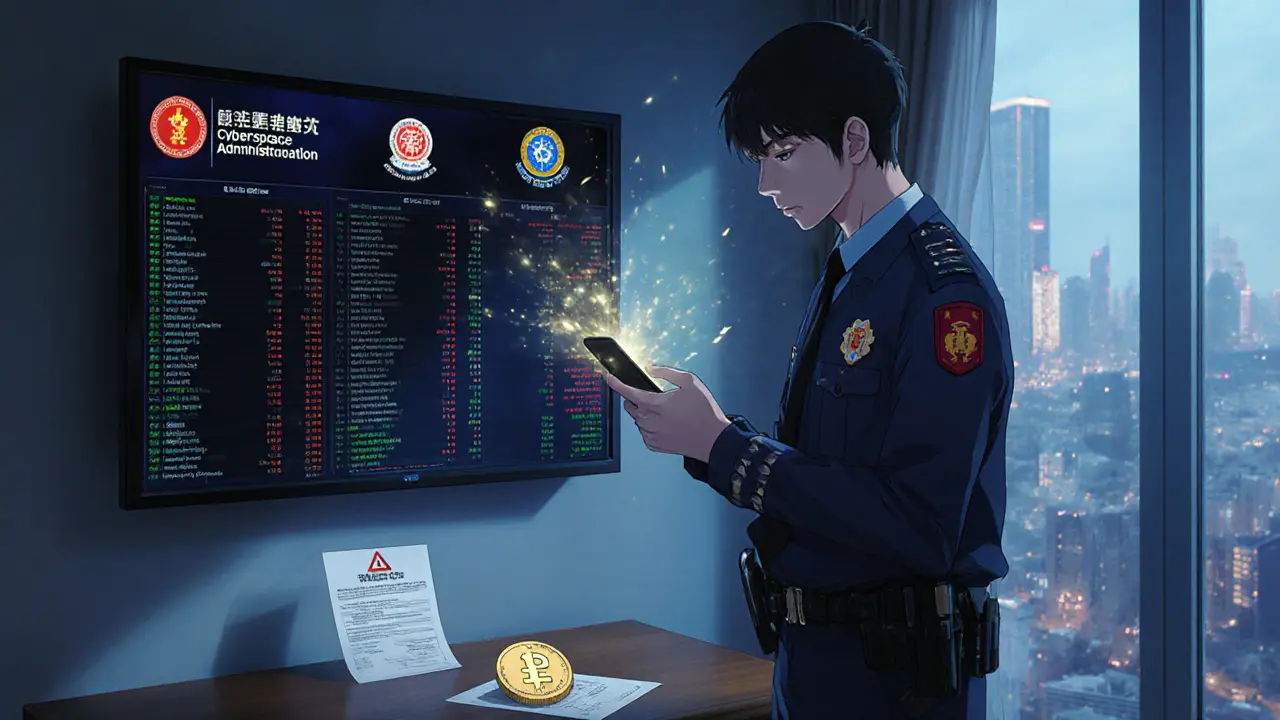
The Tech Risks Are Just as Bad
Even if you avoid legal trouble, the technical risks are real. Most free or cheap VPNs sell your data. Some have been caught logging user traffic and selling it to third parties. In China, that means your crypto activity could end up in the hands of authorities. You think you’re anonymous? You’re not. Fake crypto exchanges are everywhere on VPN-accessible sites. They look like Binance or OKX. They take your funds and vanish. There’s no customer support. No recourse. No legal protection. And because you’re using an illegal tool to access them, you can’t report them to Chinese authorities. Plus, the apps themselves are unstable. One day your VPN works. The next, your phone says “connection failed.” You restart it. It fails again. You try another server. Same thing. You’re wasting hours trying to check your portfolio while your funds sit idle-and you’re still breaking the law.Why the Digital Yuan Is the Real Alternative
China isn’t trying to stop innovation. It’s trying to control it. The digital yuan (e-CNY) is expanding fast. It’s used for public transit, utility bills, and even small business payments in dozens of cities. Unlike crypto, it’s not decentralized. It’s not anonymous. It’s designed for traceability, stability, and government oversight. The government wants you to use it. They’ve even offered cash incentives to download the e-CNY app. It’s faster than Alipay. It works offline. It doesn’t require a bank account. And it’s completely legal. Stablecoins tied to offshore yuan (CNH) are being tested in Hong Kong and Macau-but not in mainland China. Even those are tightly regulated. No public blockchain. No mining. No peer-to-peer trading. Just controlled, state-monitored payments. There’s no future for private crypto in China. The digital yuan is the future. And it’s already here.
What Should You Do Instead?
If you’re in China and want to participate in digital finance:- Use the official digital yuan app. It’s free, secure, and legal.
- Don’t try to access foreign exchanges-even with a VPN.
- Don’t buy crypto from friends or peer-to-peer platforms.
- Don’t use third-party apps that claim to offer “crypto savings” or “yield farming.”
- If you already hold crypto, consider it a high-risk asset with no legal protection.
Is There Any Hope for Change?
Don’t count on it. China’s leadership sees crypto as a threat to financial sovereignty. The digital yuan is their answer-not a compromise, but a replacement. Every new regulation tightens the noose. Every new tech upgrade makes detection easier. Global crypto trends don’t matter here. What happens in the U.S. or Europe has no impact on China’s policy. This isn’t a market decision. It’s a political one. The only thing that might change is how strictly the rules are enforced. Right now, enforcement is uneven. Some provinces crack down harder than others. But the trend is clear: more monitoring, more penalties, fewer loopholes.Final Reality Check
Using a VPN to access crypto in China isn’t a technical workaround. It’s a legal gamble with high stakes. You’re risking your money, your data, your phone, and potentially your freedom. There’s no reward worth that risk. The digital yuan gives you fast, secure, legal access to digital payments. Why risk everything for something the government has already declared illegal? The answer isn’t better VPNs. It’s accepting that crypto has no place in China’s financial future-and choosing the path that keeps you safe.Is it illegal to own cryptocurrency in China in 2025?
Yes. As of June 1, 2025, China banned all private cryptocurrency activities, including ownership, trading, and mining. While courts may recognize crypto as a digital asset in civil disputes (like fraud), this does not make holding or transacting in crypto legal. Any possession is considered a violation of financial regulations.
Can I get arrested for using a VPN in China?
You won’t be arrested just for using a VPN alone. But if you use it to access banned services like cryptocurrency exchanges, you can face serious penalties: bank account freezes, phone confiscation, mandatory police visits, or even deportation for foreigners. Authorities treat VPN use for crypto as a combined violation of internet and financial laws.
Are any VPNs legal in China?
Only government-approved VPNs are legal-and they’re restricted to businesses for official use. Consumer VPNs sold on app stores or online are not authorized. Even if they work temporarily, they operate illegally and can be blocked at any time. There are no reliable, legal consumer VPNs for bypassing China’s internet restrictions.
What happens if I send money to a foreign crypto exchange from China?
Your transaction will be flagged by banks and payment processors under anti-money laundering rules. The People’s Bank of China and State Administration of Foreign Exchange monitor cross-border flows. If detected, your account may be frozen, funds seized, and you could be investigated for illegal foreign exchange activity or financial fraud-even if you’re not trading directly.
Can I use the digital yuan to buy crypto?
No. The digital yuan (e-CNY) is designed to replace private cryptocurrencies, not enable them. The app does not allow transfers to crypto exchanges, peer-to-peer platforms, or foreign wallets. Any attempt to use e-CNY for crypto purposes would violate its terms and trigger regulatory alerts.
Do tourists get targeted for using crypto via VPN in China?
Yes. Tourists are not exempt. Chinese authorities treat all individuals equally under financial and internet laws. Foreigners have been fined, had their devices inspected, had their visas restricted, or been deported after being caught accessing crypto platforms via VPN. Nationality offers no legal protection.



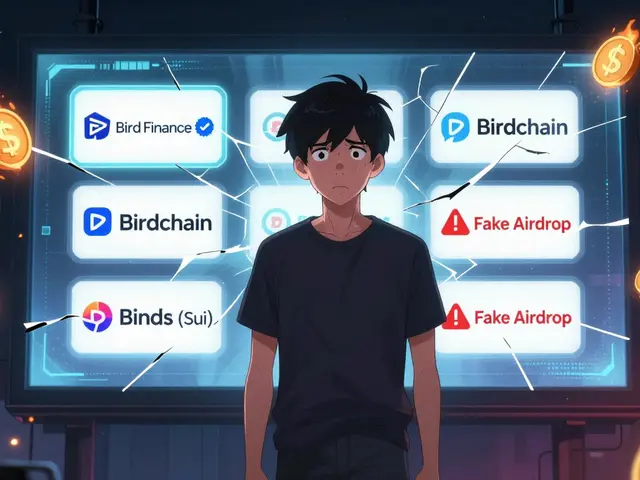
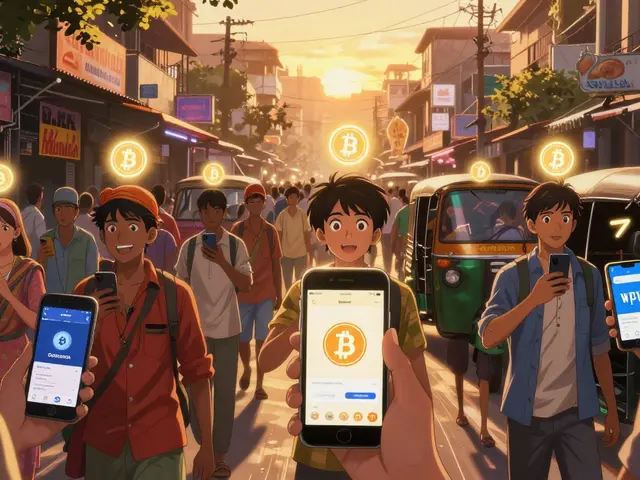


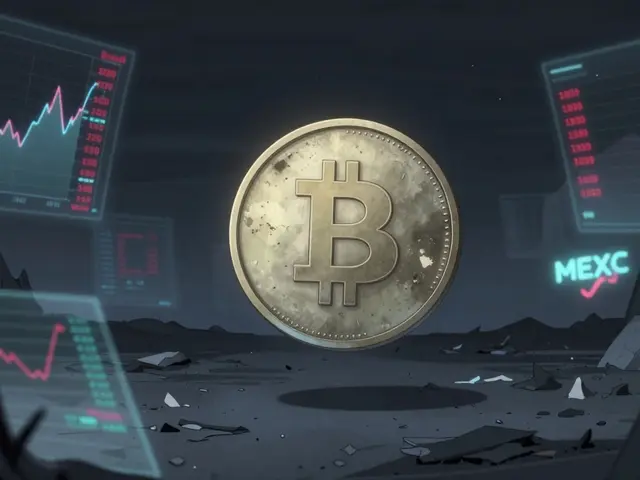


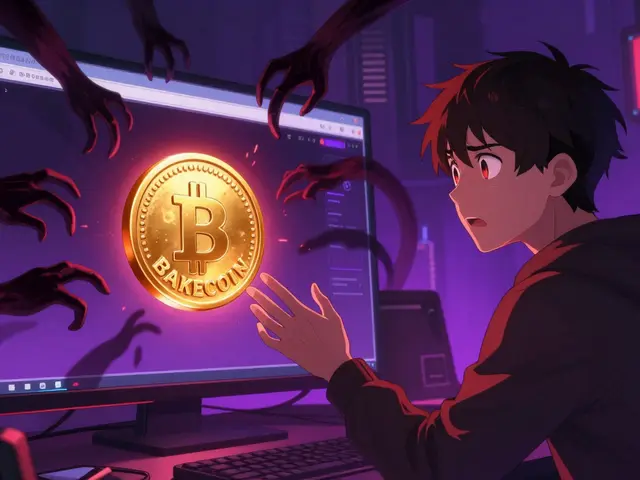

Allison Doumith
November 5, 2025 AT 05:37 AMChina's not banning crypto because it's dangerous-it's banning it because it's free. And freedom scares them more than hackers or inflation ever could. They don't want people owning anything they can't track, control, or tax. The digital yuan isn't innovation-it's surveillance with a user interface. And we act like this is unique? Nah. It's just the next step in the global slide toward financial authoritarianism.
They call it stability. I call it surrender.
We're all just waiting for the day our wallets get a government approval rating.
Scot Henry
November 5, 2025 AT 10:01 AMMan I tried using a VPN in Shanghai last year just to check my BTC. Lasted 47 minutes before my phone went full brick mode. No warning. No error. Just dead. Then my bank app started asking me weird questions about ‘foreign transactions’ even though I didn’t do anything. Gave up. Now I just use e-CNY for coffee and regret everything.
Worth it? Not even close.
Sunidhi Arakere
November 6, 2025 AT 07:36 AMIn India also we have strict rules on crypto. But here at least we can talk about it. In China, even talking about it can be risky. I respect their choice, but I feel sorry for people who want to be part of digital future. Digital yuan is safe, yes. But safety without freedom is just a cage.
Vivian Efthimiopoulou
November 7, 2025 AT 03:05 AMThis is not merely a regulatory shift-it is a metaphysical redefinition of value itself. The Chinese state has declared that financial autonomy is incompatible with social order. Cryptocurrency, as a decentralized, non-sovereign, peer-to-peer medium of exchange, represents the antithesis of centralized control. It is not merely illegal-it is ontologically dangerous to the state’s epistemology.
The digital yuan is not currency. It is a transactional ledger under sovereign supervision. It does not empower individuals-it administers them. And in this paradigm, resistance is not heroic. It is statistically inevitable. And statistically, it is doomed.
There is no moral victory in defiance when the system holds every key. The only ethical choice is to withdraw, not in protest, but in preservation. To live, not to win.
Angie Martin-Schwarze
November 8, 2025 AT 15:01 PMi just wanna know if my 2 btc i bought in 2021 is still mine?? like… legally?? or did the govt just… take it?? i dont even know who to ask. i tried calling the bank and they just said ‘we dont handle that’ and hung up. 😭
Fred Kärblane
November 9, 2025 AT 11:43 AMLet’s get real-this isn’t about crypto. It’s about control architecture. The e-CNY is a full-stack sovereign payment OS. It’s not just a wallet-it’s a behavioral nudging engine. Every transaction is a data point. Every spend is a feedback loop. Crypto disrupts that. Period. And China’s playing 4D chess while the West is still debating whether to regulate stablecoins.
Don’t cry about the ban. Cry about the fact that we’re all gonna be on state-backed digital ledgers by 2030. China just got there first. The question isn’t ‘why ban crypto?’ It’s ‘why haven’t you built your own?’
Janna Preston
November 10, 2025 AT 02:39 AMSo if I use e-CNY to pay for groceries, can they see I bought organic kale vs. regular? Like… how deep does the tracking go? I’m not trying to hide anything, but it’s just… weird to think every coffee I buy is logged and tagged. Feels like my money has a GPS.
Meagan Wristen
November 10, 2025 AT 04:39 AMI really appreciate how thoughtful this post is. It’s easy to get emotional about crypto, but this breaks it down without fearmongering. I’ve got friends in Beijing who used to trade Bitcoin and now they’re all using e-CNY for everything-even giving it as red envelopes during Lunar New Year. It’s not glamorous, but it works. And honestly? It’s nice not to worry about getting flagged. I think the real win here is peace of mind.
Maybe the future isn’t about freedom from control… but freedom *through* control. Weird, right?
Becca Robins
November 10, 2025 AT 18:47 PMso like… if i use a vpn and buy crypto and then the gov finds out… do they just take my money or do they also like… come to my house?? 😳 i need to know before i buy that next dogecoin 🐶
Alexa Huffman
November 10, 2025 AT 19:27 PMMy cousin in Shenzhen switched to e-CNY last month. Said it’s faster than Alipay, works without internet, and she got 50 yuan just for signing up. No drama. No stress. No VPNs. No paranoia. She says she feels like she’s finally part of the system instead of fighting it. I used to think crypto was the future. Now I think maybe the future is just… quiet.
Ryan McCarthy
November 11, 2025 AT 02:21 AMI think the real tragedy isn’t the ban-it’s that people in China are being forced to choose between safety and innovation. The digital yuan is brilliant engineering. But it’s not a choice. It’s an expectation. And that’s what makes it so powerful… and so lonely.
Maybe one day, when the world sees what’s possible with state-backed digital money, we’ll look back and realize China didn’t kill crypto.
They just made us realize we didn’t need it.